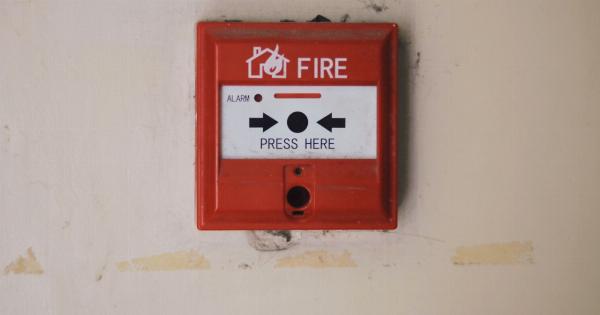When it comes to the health of our children, finding the right medical care is of utmost importance. Pediatric hospitals play a crucial role in providing specialized care for children, particularly in combating infections.
With their expertise and dedication, these champion pediatric hospitals have made significant progress in addressing infections specific to children and have become leaders in the field.
The Importance of Pediatric Hospitals
Pediatric hospitals are designed specifically to cater to the unique healthcare needs of children.
They have a team of specialized pediatricians, nurses, and support staff who have extensive experience in dealing with the health issues faced by children. Additionally, these hospitals provide an environment that is child-friendly, ensuring that children feel comfortable and secure during their treatment and recovery.
The Challenge of Infections in Children
Children are more susceptible to infections due to their developing immune systems and their exposure to various environments such as schools and daycare centers.
Additionally, their ability to communicate symptoms accurately can be limited, making diagnosis and treatment more challenging.
Prevention and Control Measures
Pediatric hospitals employ various strategies to prevent and control infections among children. These measures include:.
1. Strict Hand Hygiene Protocols
Hand hygiene is one of the most effective ways to prevent the spread of infections. Pediatric hospitals have established strict hand hygiene protocols for all staff members and ensure that proper handwashing techniques are followed at all times.
2. Isolation Facilities
Isolating infectious patients is crucial to prevent the transmission of infections to other vulnerable children.
Champion pediatric hospitals have dedicated isolation facilities equipped with appropriate infection control measures to minimize the risk of spreading infections.
3. Vaccination Programs
Vaccinations play a critical role in preventing infections. Pediatric hospitals focus on promoting and administering vaccines to children, ensuring that they are protected against various vaccine-preventable diseases.
4. Education and Training
Champion pediatric hospitals prioritize education and training programs for both healthcare professionals and families.
By equipping healthcare providers with the latest knowledge and skills, these hospitals enhance their ability to identify and manage infections effectively. They also empower parents and caregivers with essential information on infection prevention and care.
Advanced Diagnostic Techniques
Rapid and accurate diagnosis is crucial in managing infections in children. Champion pediatric hospitals are equipped with state-of-the-art diagnostic technologies specifically tailored to the unique needs of children.
These technologies enable precise identification of infectious agents, allowing for targeted treatment strategies.
Research and Innovation
Champion pediatric hospitals continuously invest in research and innovation to combat infections in children.
They collaborate with leading researchers, contribute to scientific advancements, and participate in clinical trials for new treatment modalities. This commitment to research ensures that pediatric hospitals are at the forefront of medical knowledge and can provide the best care to their young patients.
Specialized Pediatric Infectious Disease Departments
Pediatric hospitals often have specialized departments dedicated to infectious diseases in children. These departments consist of multidisciplinary teams with expertise in diagnosing and treating a wide range of infections.
The collaboration between infectious disease specialists, pediatricians, nurses, and other healthcare professionals ensures comprehensive care for children with infectious diseases.
Family-Centered Care
Champion pediatric hospitals recognize the importance of family-centered care in the treatment of infections in children.
They involve parents and caregivers in the decision-making process and provide emotional support to both children and their families throughout the treatment journey. By creating a supportive environment, these hospitals enhance the overall well-being of the child.
Collaboration with Community Healthcare Providers
Pediatric hospitals understand the importance of collaboration with community healthcare providers in combating infections.
They actively engage with primary care physicians, pediatricians, and other stakeholders to ensure a coordinated approach to infection prevention and control.
Conclusion
Champion pediatric hospitals play a vital role in combatting infections in children.
Through their dedication, expertise, and commitment to innovation, they have made significant progress in preventing, diagnosing, and treating infections specific to children. By prioritizing the unique healthcare needs of children, these hospitals continue to provide the highest standard of care and ensure the well-being of our youngest population.


























